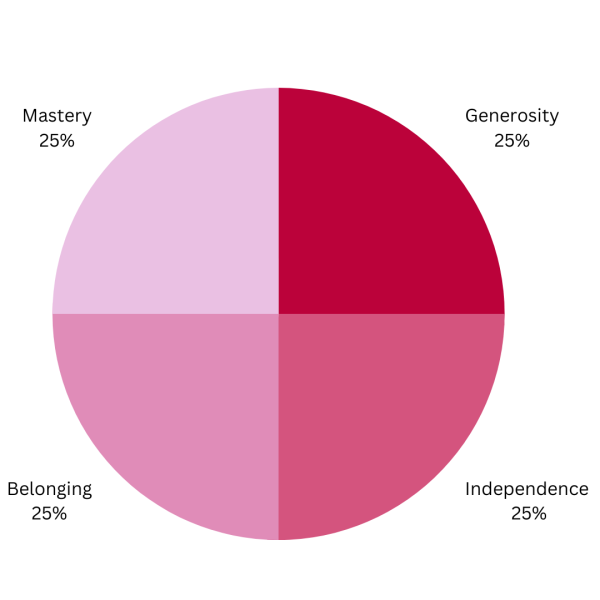Our Practice Models
Our practice models are based off three main approaches:
- Client-Centred Approach
- Trauma Informed Approach
- Cultural Practice Approach
Our Approaches
Client Centered Approach
We operate on a few principles to guide this approach.
These principles include: Dignity and Respect, Open Communication, Participation, and Collaboration.
Trauma Informed Approach
This approach guides us through the knowledge that all individuals have certain experiences that form their responses to the world around them.
Cultural Practice Approach
We structure our holistic teachings based on the Circle of Courage model, which can be used to identify issues impacting our children and guide our healing response.
Client-Centred Approach
Our Client-Centred Approach Philosophy is founded upon an interactive process with the client, our team, the care providers, and any other needed external supports.
Dignity and Respect
The values, beliefs, knowledge, cultural, and spiritual backgrounds of all individuals living with disabilities are incorporated into the environment and into their daily care.
Open Communication
Effective services and care results from clear, transparent, and respectful communication between the client, our team, the family, other stakeholders and external team members.
Participation
Youth and any available family members are encouraged and supported in participating in their daily living, allowing for a therapeutic relationship based on reciprocity, regardless of any cognitive, emotional, mental, and/or physical inability.
Collaboration
Clients and their family members are included on an organization-wide basis. We include them, the community, families and others in program design and development, evaluation, care planning, and ongoing feedback.
All individuals have certain experiences that form their responses to the world around them. Our role is to acknowledge the role that someone's trauma may have played in someone's life and the impact it may have had.
Trauma-informed practice aims to remove the idea that something is “wrong” with the person dealing with trauma, rather focusing on what the person has experienced. Research has shown that any traumatic or crisis event impacts behavioural emotional and/or psychological problems.
Trauma often leaves feelings of fleeting safety and powerlessness, and this approach takes that into account. We aim to create client experiences in which people feel safe and empowered through principles related to trustworthiness, collaboration, choice and empowerment, and a strength-based approach.
We believe that holistic teachings based on the Circle of Courage model can be used to identify issues impacting out children, and guide us through the healing process.

The Circle of Courage Model is visually represented in a circle with four spokes – these are supports that are required to keep the wheel strong and true. Through exposure to a variety of healthy and culturally rich environments, our children can learn new ways of developing in these key four areas:
Belonging
A sense of belonging is one of the most important component in one's growth. All humans have a need to feel welcomed, valued, important, and safe in the knowledge that they are part of a group - a family.
Reclaiming our children in this area is entrenched in our theory that everyone must feel valued, accepted, and unconditionally supported in their endeavour to build stronger and healthier relationships.
Independence
The ability to make autonomous decisions in a direct and responsible manner is independence. Children and youth who are missing a sense of "Belonging" often feel out of control in their own lives, and their emotions and behaviours are reflective of blame, lack of personal responsibility, and "scatter-brained" type of activities.
Creating healthy opportunities for individuals to discover their autonomy and control over themselves and their immediate environment will assist in learning responsibility and independence
Generosity
Generosity is the quality of being kind, sharing, and selfless - a true form of altruism. Working towards a generous sense of self instills the idea that all people have unique gifts, stories, and talents that are worthy of sharing and understanding.
This sharing of lessons and truths while remembering our own journey in life allows us to understand and experience empathy rather than judgement. This gets internalized - we deserve to be empathetic and non-judgmental towards ourselves.
Mastery
Mastery is the motivation to strive for achievement, the willingness to take risks, and the ability to persevere in the face of adversity and hardship.
Our youth with an impaired sense of mastery may be unwilling to try new challenges out of fear of failure, give up easily and/or devalue the attempts of others. Therefore, we strive to instil intrinsic motivation for mastery in our youth.